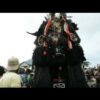Anambra News
OSU CASTE SYSTEM: WHY DO PEOPLE BEAR SURNAMES LIKE NWOSU, OSUIGWE, OSUJI?
OSU CASTE SYSTEM: WHY DO PEOPLE BEAR SURNAMES LIKE NWOSU, OSUIGWE, testosterone cream injections for sale OSUJI?
By Anayo Nwosu
Slowly but with a burdened heart, he kept rolling from one side of his bed to the other. My distraught son kept murmuring, “My father is not an outcast; he said we are from a royal family. Was he lying to me?” He eventually slept off. When he woke up the next morning, he was still feeling sad but he pulled himself together to attend his classes.
However, he remained sober in school, waiting for the term to come to an end. He was worried and was wondering why his father lied to him. Now his royal ego was punctured.
“Daddy, were your forefathers osu?” my son asked me at his school’s gate immediately he saw me in his school. It was the end of the term and I had gone to pick him up for the long vacation. Without waiting for an answer, he continued: “If we are osu, why did you lie to me that we were descendants of Great Ezeoguine, the former ruler of Nnewi, because an osu can’t be a king or a prince?”
He added: “I am not returning to this school next term. You need to change schools for me. The embarrassment was unbearable”.
I knew what had happened. Poor boy! I had the same experience while in year two in 1983 at Nnewi High School, Nnewi, Anambra State, when my own classmate and one of the youngest in the class, Ikenna Okafor, now a high chief in his home town of Akwaeze, who could no longer bear the intensity of my taunts at him, called me “nwa osu” (which means “the son of an outcast” in Igbo).
I laughed off Ikenna’s innocent dart, knowing full well that he was not an indigene of my town and couldn’t have known who my ancestors were. Even at that, I grew up with the elders in my village and had asked questions about this confusion and was satisfied with a proper education I received from my uncle. I was so sure that history had repeated itself in my son’s case and I was proved right as our further discussions revealed.
I saw the deflated ego of a rambunctious prince who had been cut to size by his detractors. I couldn’t rule out a conspiracy to reduce my boy’s attention scope from female classmates or admirers. His school is a co-educational institution and my boy is handsome, a good mixer and very friendly.
I told my son that he should not be fazed because I knew the history behind our name, its origin and its meaning. He believed me and heaved a sigh of relief. With an attention of a new convert, he then urged me to give him the full details.
I told my son that the word osu in Igbo language, just like many other words, has several meanings. I acknowledged that one of the meanings is “servant of a deity cast out from the community of freeborn and made to live around the shrine of a particular deity to which he has been dedicated to.” The designation of osu as an outcast derives from the fact that having been dedicated to a deity, they had been “cast out” from normal association with ordinary people known as freeborn. Hence an “outcast” is a derogatory description of the reclusive nature of the osu life
In Nnewi and in many other Igbo towns, the osu were those human beings who were either bought as slaves and then dedicated to a deity, or freeborn who were forced by circumstances like threat to life to dedicate themselves to a deity. There were osu who were felons dedicated to a deity by their community as a punishment for an offence or those who made personal decision to dedicate themselves to a particular deity to save themselves from imminent danger.
The osu lived within the precincts of the evil forest of the associated deity. They served on the altar of the deity known as shrines as mass servers would in a Catholic Church, receiving and assisting worshippers or visitors at the shrine of a deity. Their jobs included slaughtering sacrificial animals as directed by the chief priest.
Osu were owned by, or were regarded as the property of, the god to whom they had been dedicated. They were answerable to the chief priest and his sons and were regarded as messengers of the chief priest. The chief priest was the messenger of the gods while the osu were his servants. The chief priests and their descendants were not osu. The osu were never promoted to the office of the chief priest.
The osu only ate what they were given by the priests, usually the remnant of offerings to the gods by worshippers. They also had no ambition of their own. They married amongst themselves and were not allowed to marry freeborn except those freeborn that decided to become osu by marriage.
While slaves could be freed by their masters to become freeborn or be repurchased into freedom by their relations, it was not so with the osu. Once someone was dedicated to a deity as an osu, the only reversal option was to replace the osu with another individual who must be dedicated to the same deity in his place. That is, an osu could free himself and become a freeborn by having or causing another (male for male, female for female) to be pledged to the owner deity. Other minor cleansing or exorcism rites may be required.
This practice had since stopped with the advent of Christianity and British colonialism. When the revered shrines of the supreme deity of Igbos at Arochukwu were destroyed by British expeditionary forces between 1897-1900 and the subsequent destruction of the shrines of other powerful gods in the Igbo hinterlands, the osu caste system was dismantled.
The British freed many of the osu holed up in all the evil forests in Igbo land. Able-bodied ones amongst them were conscripted into the Royal British Army and were happy to wreck havoc on their former human lords and chief priests. Some others joined the foreign religion (i.e. Christianity) and became priests, teachers, interpreters, catechists and administrative officers, and therefore advanced in status more than their former oppressors.
My son was impressed with my coherent rendition of history but still looked troubled. He asked, “Daddy, you mean our ancestors were dedicated to a god? Which of the gods in Nnewi were they dedicated to?” Then, I realized that I needed to finish the explanation in a thorough manner.
I told my son to recall that I had mentioned earlier in my narrative that some words in Igbo language with same pronunciation and letters could have different meanings. He nodded and urged me to let him know the other meanings of osu. And I continued.
There are others who answer “Osu” as in Osuizugbo meaning “the greatest leader Igbo wide”.
My wife’s village in Uga is called Umu Osu. The “Osu” in the name is a short form of Osu-agha, meaning “a war commander”.
“Osuigwe means “the greatest in the sky,” while “Osuocha” means “the whitest or the fairest in complexion in a community”. The title of “Osuji” (i.e. Osu Ji) belongs to “the biggest yam farmer” in a community.
My son was happy to hear that our own Nwosu is a short form of “Nwa osu agha” meaning the son of a great warrior or the chief army commander”.
It is noteworthy, I told my son, that outcasts in my town and entire Igbo land don’t bear Nwosu as a surname. They could not have been allowed to as the name is a preserve of either a great man or holder of an ozo title. Osu are neither given ozo titles nor considered great.
The most popular Nwosu in Nnewi history are Nwosu Ezeodumegwu, the richest man within 20 towns surrounding Nnewi up till 1938, and his cousin Nwosu Ezeonwaneti, my great grandfather, who was a traditional lawyer and an orator for Otolo Nnewi. Nwosu Ezeonwaneti and Nwosu Ezeodumegwu were the grand children of Ezeoguine, who ruled Nnewi, a town which its kingship is hereditary, and today has Igwe Orizu III, who is from our big family (umunna), as its traditional ruler.
“Daddy, could you please put all these you have told me in writing so that I can present it as a birthday gift to a teacher in my school who bears Nwosu as surname?”
“Here you have it, son”, I said while handing over a printed copy of this piece to Prince Jachike Anayo Nwosu. I was happy to see on my son’s face the energized zeal of a newly decorated prince ready to walk in a zigzag swagger, announcing the validity of his royalty wrapped in a huge relief that his ancestors were never outcasts.
I am sure that this write-up shall also gladden the heart of many Nwosus, especially my cousin Pius, who had to change his surname from Nwosu to Nwachukwu (meaning God’s child), to avoid difficult-to-explain, opprobrious taunts from ignorant emotional bullies.
Email:anayo_nwosu@yahoo.com





















